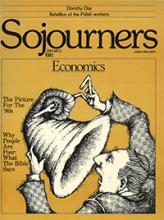In the five months since the workers' uprising began in Poland, events there have been thick with irony. Workers staged a sit-down strike for the right to form their own organizations at a factory named for Lenin, who led a revolution that was supposed to result in worker control of the means of production. The industrial proletariat has indeed become the agent of revolutionary change as Marx predicted, but it has risen against a system that calls itself Marxist. To top it off, the "opiate of the people," the Roman Catholic Church, has given important inspiration and support to a movement for worker power and democracy. Karl Marx, who during his lifetime insisted that he was not a Marxist, would certainly be amused.
No less ironic has been the spectacle of U.S. conservatives, who consistently support anti-union measures in this country, having suddenly become advocates of militant unionism in Poland.
In the U.S., the significance of events in Poland has been discussed almost exclusively in terms of its potential for weakening Soviet influence in the world or increasing U.S.-Soviet tensions. It is true that the situation, with the possibility of Soviet military intervention and Western response, is very dangerous. We should pray for Soviet restraint. As Christians who seek to support oppressed people everywhere, our response to the Polish struggle should also be one of rejoicing at the strides toward liberation that have been made and of listening for lessons it may hold for the struggle for justice in our own country and throughout the world.
Read the Full Article

